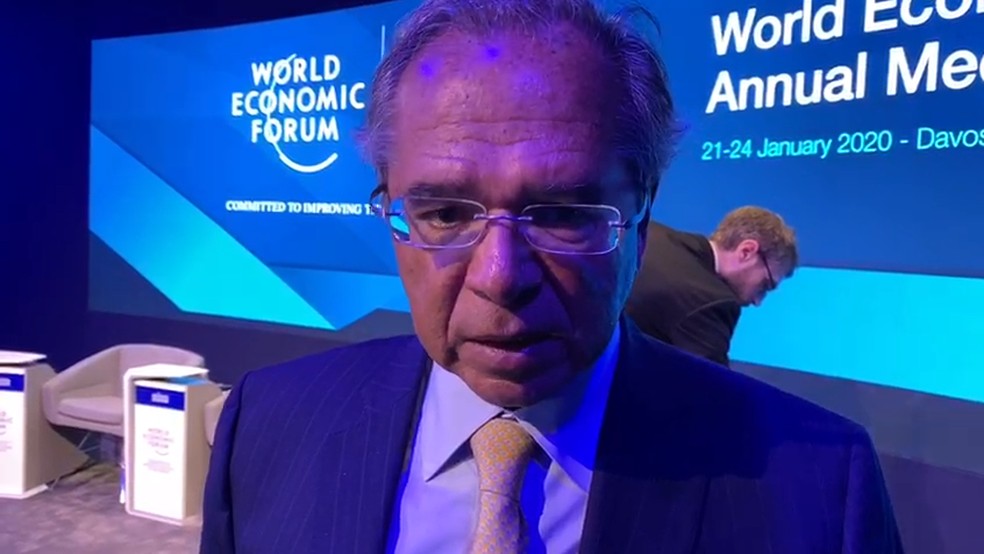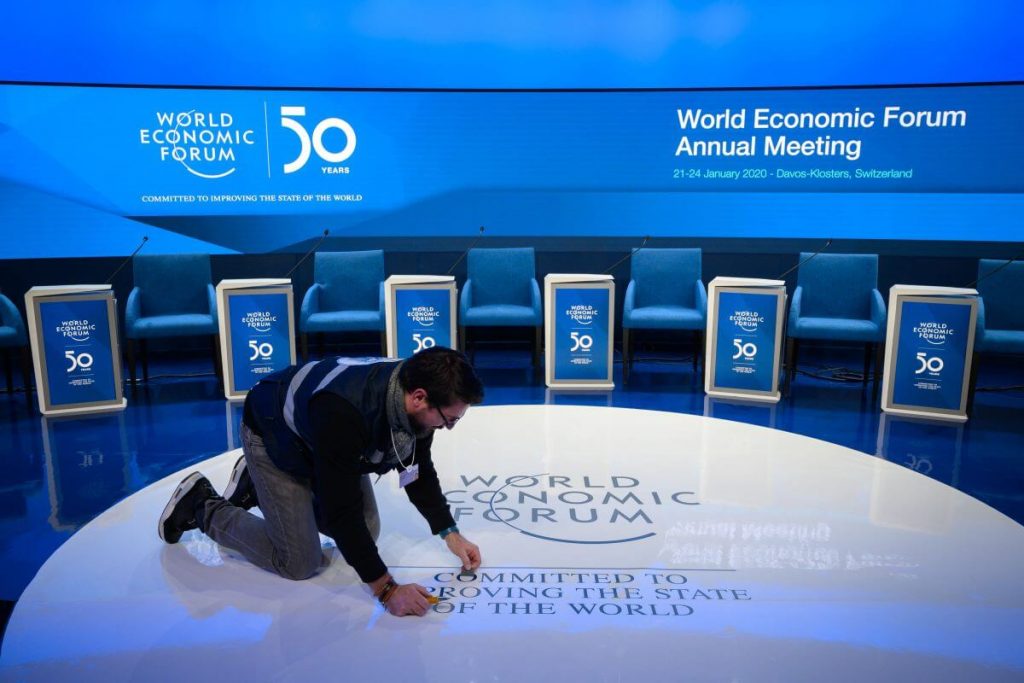RIO DE JANEIRO, BRAZIL – The Brazilian delegation at the World Economic Forum in Davos, Switzerland, met on Wednesday, January 22nd, with 20 major investors to introduce the Investment Partnership Program (PPI) portfolio.
Attended by the Minister of Economy, Paulo Guedes, the meeting is a bridge seeking to attract foreign capital to finance medium and long term projects in Brazil.
The government introduced all 115 projects already structured or still in their study phase that make up the portfolio for 2020 and 2021, which represent R$320 (US$80) billion, R$264.1 billion of which in investments and another R$55.5 billion in privatizations.

This includes the 5G telecoms auction, whose public consultation will open in February. The United States and China are involved in a dispute over the new technology. According to the government, the bidding and auction are scheduled for the second half of this year.
The initial estimates of the grant value (fee paid to exploit the public concession) plus the investments are approximately R$20 billion.
The government also introduced an infrastructure portfolio with 11 railroads (such as Ferrogrão, with 933 kilometers between Sinop/MT and Miritituba/PA), 22 airports divided into three blocks, 19 highways, in addition to the privatization of companies such as Eletrobrás, Nuclep, Casa da Moeda (National Mint) and studies for the privatization of Telebrás and Correios.
The introduction also included state concession projects in the sanitation areas, such as the Companhia Estadual de Águas e Esgotos (State Water and Sewage Company – CEDAE), from Rio de Janeiro.
PPI Secretary Martha Seillier told the newspaper O Estado de São Paulo/Broadcast that the goal was to introduce investment opportunities for these investors and to dispel any “unease” regarding Brazil on environmental issues or other controversies involving the government.
Last week, President Jair Bolsonaro dismissed the then Secretary of Culture, Roberto Alvim, after he released a video paraphrasing Joseph Goebbels, the Nazi propaganda minister. On the eve of the trip to Davos, the incident raised concern to the economic area and fear that it would “stain” the Brazilian participation in the event.
Environment
Environmental issues have also come under the spotlight in recent months as a result of the fires in the Amazon and the advance of deforestation. The environment, climate change, and sustainable development are central topics in this edition of the forum and have entered the radar of investors and decision-makers.

“These high-level events, in which we are typically meeting with the CEOs of companies, are an opportunity to clear up some doubts, clarify some issues, some questions about Brazil, any kind of uneasiness,” said Martha, who traveled to Davos to join the Brazilian delegation.
The breakfast was organized by Itamaraty and the Brazilian Export and Investment Promotion Agency (APEX Brasil). For a limited space, 20 investors were selected among those who expressed interest in the talks with the Brazilian government. The list of participants has not been released.
In the introduction, to which the report had access, there was a specific chapter on environmental licensing, introduced as the main control tool for implementing activities that use environmental resources or pose a risk of degradation to the environment. “It is the policy’s main goal to reconcile economic and social development with the preservation of environmental quality and ecological balance,” reads the text.
According to the secretary, Guedes’ presence is crucial to ensure investors that Brazil is doing its “homework” in the fiscal area and continues to address other reforms, such as tax and administration.

